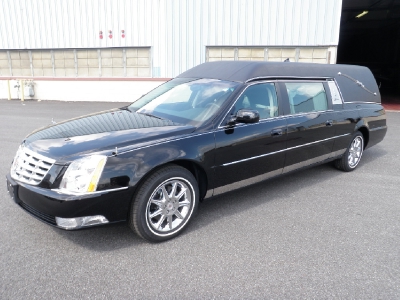The fourth installment from awesome Austin-based funeral director Sarah Wambold documenting the process of opening her own funeral home.
(Catch up: American Funeral Home Revolution #1, #2, #3)
*~*~*~*~*~*~*~*~*~*~*~*~*~*~*
Hey Funeralites,
Thanks for checking back. Here’s more of what’s been up since my last post more than a month ago! Oy vey!
A few weeks ago, my phone buzzed at 8 a.m. Still in bed, I answered it. On the line, an imposing voice began, “This is the Texas Department of Vital Statistics regarding your registration for access to the Texas Electronic Registry (TER).”
“Uh-huh,” I uttered, the feelings of frustration beginning to collect in my head.
“On the application, you have listed as the funeral home’s name ‘Self.’”
“Uh, yeah,” I stammered, “I am going to be self-employed.”
“You cannot –” said the voice, this time with a sharper degree of indignation “– register without submitting the name of a facility licensed by the state of Texas.”
“OK,” I said. Since I already expected as much, I decided to go for all the bad news at once. I asked, “So, when I get that, what will this (TER) registration cost?”
“Oh,” the voice suddenly softened. “Nothing. Registration is free.”
For once.
Back to bed, pillow over my head.
Local funeral home owners’ patronizing laughs filling my dreams.
I woke up back at square one: No money. No licensed funeral home.
The formality of playing by the rules is what gets me down the most. Right now, I simply cannot afford it. Remember when Obama said small businesses didn’t get to where they are on their own? Remember how pissed people got? Do you know how true that statement is? You have to have money to make money — to get a loan, to open a funeral home, or to legally file death certificates for families who don’t even want a traditional funeral.
Texas does not require a family to work with a funeral director after a death. However, it does (like all states) require that a death certificate be filed. In order to do so, you must either work with the Office of Vital Statistics directly, or with a funeral director with access to the TER. Let’s just say that your loved one dies and you happen to live in a county that doesn’t like non-licensed people filing death certificates. Actually, they make it crazy hard/confusing. (Fact: My county, bless them, is totally fine with this. The county right next door, however, where potential customers live, is not.) So to avoid the hassle of dealing with bureaucracy, you decide to have someone else do the unsatisfying job of filing the paperwork while you focus on planning a lovely home funeral. You decide to call a funeral director just for help with paperwork. That director is legally required to be connected to a funeral home in order to file the death certificate.
Here is what getting a funeral home licensed in Texas requires: access to rolling stock (hearses/vans), a prep room for embalming, two full-size caskets on display, and a place where people can gather to hold a service. Just a tad more than simply getting my DBA licensed. I get why things have to be official and why licenses matter. We all want accurate records. But I am pretty sure I can do all that without a big chunk of real estate.
I Had It All Once and Lost It: Or, how the funeral industry wants me to feel.
In reality, what I had access to was an outdated prep room that was so disorganized and crammed with junk that I wouldn’t waste a match to burn it. Tacky caskets that went for $5000. Flashy Cadillacs. Shop talk: “We can stop this cremation craze!”
When I left my last position as a funeral director, I did so to start something that would give people an alternative to that model. But to access the TER, I “need” it.
There are ways around each of these issues. The quickest may be just getting hired by a local firm — if only it were that simple. Did I mention that there are no funeral jobs in Austin? Wait, that’s not quite true. There are, they’re just filed under “Only apply if you’re into brainwashing” or “Non-family need not apply.”
Another less compromising way around the requirements is to just contract with a mortuary service for access to vehicles and prep facilities — if they will call you back with a price list. (Not to get in too deep on this point, but it is a problem.) This would just leave me looking for some space and some caskets.
I will say that I am relieved to have no choice but to do my own thing. I look at the train wreck that the funeral industry is today and feel a mix of repulsion/joy. It’s so bad, it’s funny. But going up against it feels a bit like taking on the world, particularly if you start with nothing.
In the past year, I have applied for five grants. I have gotten zero. I know this is how it goes; professional grant writers tell me that for every ten grants you apply for you might get one. So, while I am frustrated, I keep at it. Many people bring up crowd-funding sites as a way to raise funds. Of course I have thought about this, but to get the money I need I would have to offer some substantial returns, i.e., gifts. But maybe not — maybe 16,000 people would donate $5 each and I’d send everyone a customized puffy-painted funeral flag to put on their car during processions. (Seriously, if 16,000 of you want those, I’ll do it.) So I’m not giving up on that idea altogether.
I am also lucky to have made some great connections within the alternative funeral community in Austin and so, despite the tone of this post, I do feel like I am getting somewhere, however slowly.
With the end of the year upon us, I may not be back here until early 2013. Before I sign off, I wanted to tell you all one more thing — my funeral home has a name! I have decided on Continuum, a word that brings together our past, present and future.
I hope everyone has a terrific New Year!




